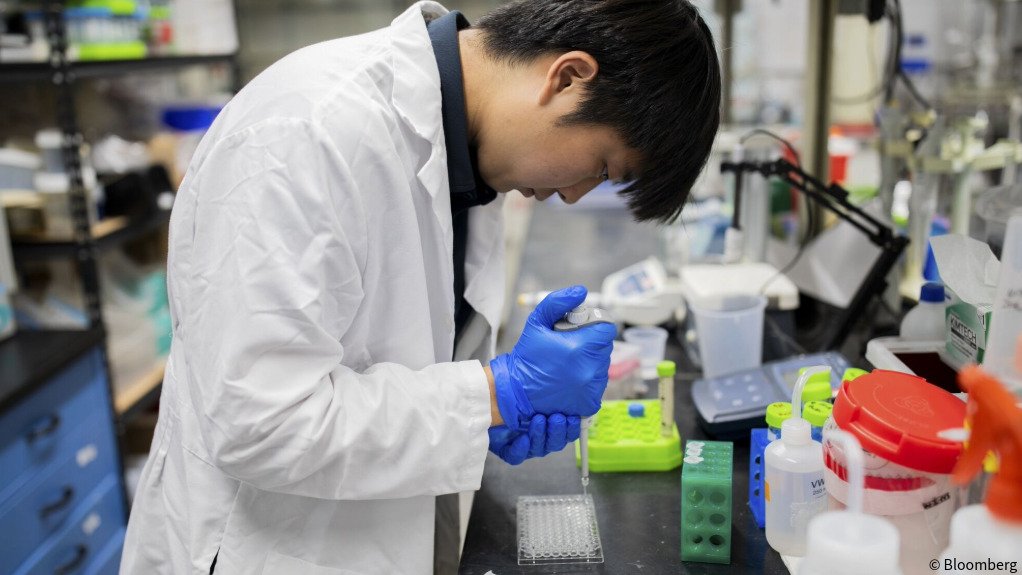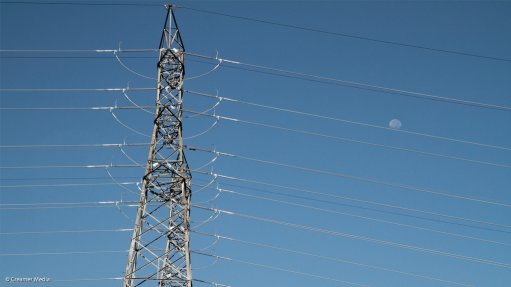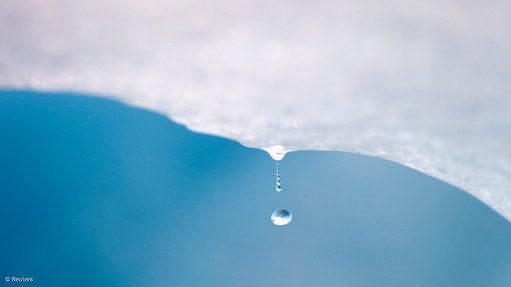Trump's critical minerals obsession reignites deep-sea mining
The leader of one of the most aggressive seabed mining startups spent years invoking global warming to spark interest in extracting avocado-sized rocks rich in electric-vehicle battery metals from the bottom of the ocean.
“We want to help the world transition away from fossil fuels with the smallest possible climate change and environmental impact,” Gerard Barron, the Australian chief executive officer of a company then known as DeepGreen, told a 2019 meeting of the United Nations-affiliated International Seabed Authority, which for a decade has been debating regulations to allow the mining of untouched, biodiverse deep-sea ecosystems in global waters.
That's not Barron’s pitch anymore. Climate was out and critical minerals were in during an appearance earlier this year before a congressional committee in Washington, DC. His firm, renamed as The Metals Company (TMC), would help “ensure the nation's energy security and industrial competitiveness for generations,” Barron said. “China is close behind.”
Barron’s new tack is working. In April, President Donald Trump issued an executive order expediting US licensing of seabed mining, departing from international law to unleash what the administration called a “gold rush” to “counter China’s growing influence.” The country is set to conduct ISA-sanctioned tests of two seabed mining machines in the Pacific over the next year.
China already dominates the critical minerals supply chain on land, and TMC had successfully tapped into the US president’s pursuit of China-free metals, expressed as a desire for dominion over Canada and Greenland. The global seabed, TMC repeatedly emphasized as it lobbied politicians and the White House, holds the planet’s largest estimated reserves of minerals like cobalt and nickel in the form of black rocks called polymetallic nodules. These cover the Pacific Ocean floor by the billions.
In an instant, Trump cleared the way for a race to the abyss to extract nodules, even though seabed mining technology remains under development and commercially unproven. At ISA’s annual meeting this week in Kingston, Jamaica, delegates are grappling with how to respond to this attempt to bypass its rulemaking process while protecting fragile deep-sea habitats scientists are just beginning to understand.
Within days of Trump's order, Canadian-registered TMC’s US subsidiary filed the world’s first application to mine the seabed in international waters, including an area it licenses from the ISA. An $85-million investment from a leading Korean metals processor soon followed. Nasdaq-listed TMC’s shares, which have periodically languished below a dollar, hit a 52-week high of $8.19 on Thursday.
A Silicon Valley startup called Impossible Metals, meanwhile, has applied for a license to explore and possibly mine nodules in US waters off American Samoa, with an aim to raise $1-billion. Then July 14, a top executive at US defense giant Lockheed Martin told the Financial Times the company is in talks to give seabed miners access to international areas of the Pacific it licenses from the US. A Lockheed Martin spokesperson declined to confirm the report but said, “We appreciate the Trump administration’s focus on ensuring reliable sources of critical minerals, including the ocean.”
The Trump-triggered seabed mining boom faces significant hurdles, though. While TMC has told investors it expects to begin mining within a year of receiving a license, the technology to extract minerals from the seabed at depths of 4 km could be years away from being deployed at scale. Its competitiveness with terrestrial mining is unknown, as is the economic viability of processing and refining seabed minerals amid seesawing metal prices and the growing market share of battery technologies not reliant on nodule metals. The US lacks such metallurgical capacity, and it could take years to bring online in the few countries outside of China with the potential to refine nodule minerals.
“Given the rapid evolution of batteries and other relevant technologies, there is great uncertainty about the future demand for critical minerals,” researchers at RAND wrote in a recent report. “A seabed mining industry, as a whole, faces considerable opposition from nations and organizations concerned about the potential negative environmental impacts.”
The White House did not respond to a request for comment.
The countries that TMC relies on for seabed mining and processing technology are among the ISA’s 169 member nations (plus the European Union) that oppose unilateral mining in international waters. Amid such backlash, a Japanese corporation, Pacific Metals Company, that planned to process TMC’s nodules has now told investors that it would only “launch operations once the international rules are finalized.”
“All those parties have a legal obligation to ensure that deep sea mining only takes place through the ISA,” says Samantha Robb, an Amsterdam-based attorney who specializes in ocean litigation.
At the ISA, delegates convened behind closed doors on Friday to debate how to respond to TMC’s plans. Barron, who once sat with the delegation of a tiny Pacific island nation that sponsors one of TMC’s ISA contracts, has been absent this year but he’s weighing in from afar. “Amid some noisy grandstanding coming out of Jamaica this month, this is a good reminder … the US has every right to pursue seafloor resources in international waters,” he wrote Wednesday on X.
In a statement to Bloomberg Green, TMC says it’s “on firm legal and regulatory footing,” citing the sizable investments it’s recently attracted. The company, however, cautioned investors in a May securities filing that a US mining license wouldn’t be recognized internationally, which could affect “logistics, processing, and market access” for the seabed minerals TMC mines.
‘It’s going to take some time’
More than a thousand miles southwest of Mexico on a September morning in 2022, a yellow, 80-metric-ton machine slowly rumbled across the seabed on tank-like treads, a plume of sediment billowing behind. During a two-month test for TMC, the 38-foot-long prototype vacuumed up 3,000 metric tons of nodules, sending them through a tube to a specialized surface vessel called the Hidden Gem.
TMC hailed the trial as a success. Yet any commercial operations are a ways off, even if the US grants TMC a mining license this year, given technological and legal obstacles that must be overcome.
Allseas, a Dutch-owned, Swiss-registered offshore engineering and construction company, developed the technology, the world’s only working prototype of a nodule mining system. The company supplies the apparatus to TMC and is its second-largest shareholder. To meet TMC’s production targets, it must now build a much bigger version capable of harvesting nodules nearly around the clock under crushing pressure far from shore.
A US seabed mining license, however, would require TMC to deploy American-built and owned vessels. How the companies would comply with that mandate is unclear. Allseas said in a statement that it would take about two years to engineer the technical systems to support full-scale mining but it won’t begin that work “until we are confident that all relevant regulatory conditions are met.” Allseas, which itself owns an ISA-licensed seabed mining company, has come under pressure from Dutch politicians and activists not to provide technology for unilateral mining.
TMC says it can’t comment while its US mining license application is under review. But in a May 14 securities filing the company said it’s “evaluating US-based vessel” options. However, the US hasn’t built a specialized seabed mining ship like the Hidden Gem, and only eight US ocean-going bulk cargo carriers — large ships that can hold tens of thousands of pounds of nodules and transport them to shore — are in service. Seven of them are at or near the end of their lifespan, according to a 2024 US Maritime Administration report.
Impossible Metals uses a nodule collector, called Eureka, that’s designed to hover above the ocean floor, its robotic claws selecting individual nodules that its artificial intelligence program determines aren’t inhabited by marine organisms. (Scientists estimate that at least 30% to 40% of deep ocean life in the seabed targeted for mining live on nodules.)
The company has delayed a planned trial of the Eureka in an ISA-licensed area of the Pacific until at least 2027 because the technology needs further refinement. And any mining wouldn’t happen until at least the early 2030s. Impossible Metals’ mining license application is for US waters, not areas controlled by ISA. “That’s far less controversial,” said CEO Oliver Gunasekara. “But obviously it’s going to take some time.”
WHAT IT TAKES TO PROCESS A NODULE
In a small lab in Pasadena, California, scientists at an Impossible Metals spinoff called Viridian Biometals are trying to crack a problem about as challenging as pulling nodules out of the abyss: getting the metals out of the nodules.
Nodule minerals precipitate out of seawater, forming layers around a piece of whale bone, a shark tooth or another small object at the rate of a few millimeters every million years. Unlike terrestrial minerals, where a couple of different metals might be found together in a deposit, nodules contain nickel, cobalt and copper particles scattered throughout every rock, mostly embedded in a matrix of manganese oxide.
“The treatment of materials that contain all four of these elements is not something that is commercially done today,” said Lyle Trytten, a veteran of the metals processing industry and president of Canada-based Trytten Consulting Services.
Viridian scientists are tinkering with rock-breathing microbes that oxidize nodules to extract the most valuable metals. On a June afternoon, senior scientist Kenny Bolster opens up what looks like a freezer to reveal stainless steel bioreactors. As microbes inside oxide the manganese bits, they release nickel, cobalt and copper ions into a solution.
“All this happens at ambient temperature and pressure, which saves an enormous amount of energy and doesn’t produce any toxic waste,” says Viridian CEO Eric Macris.
It’ll take a few years to assess whether the technology is likely to be commercially feasible. “We love what Viridian is doing but we’re just not sure if it will be mature enough when we need it,” says Impossible Metals’ Gunasekara.
If TMC, Impossible Metals and other companies mine the ocean floor under a US license, then federal law requires the minerals to be processed and refined in America. Aside from Viridian’s early efforts, the US has no such capacity.
A single facility in the US capable of processing and refining nodules would cost several billion dollars, and could take up to a decade to reach full production, in part due to the complexities of handling an entirely new feedstock, according to Niels Verbaan, director of metallurgy technical services for Swiss testing and certification company SGS.
The US tax and spending bill enacted on July 4 allocates $5.5-billion to the Department of Defense for investments in critical minerals supply chains. But the US has suffered a precipitous decline in metallurgical expertise since the 1980s when universities began to eliminate related degree programs. “We are decades behind now, and it’s going to be very hard to catch up,” says Corby Anderson, a professor of metallurgical and materials engineering at the Colorado School of Mines. New immigration restrictions will also make it harder to recruit engineering talent from overseas.
China has invested heavily in the industry and is now in a position to retrofit existing facilities to process nodules or build dedicated new plants. The country processes 74% of the world’s cobalt ore, according to a 2024 report from the Wilson Center, a nonpartisan think tank, while 97% of global nickel ore processing capacity lies outside of North America. China also maintains more than 80% of the capacity for refining those metals into advanced EV battery materials.
There’s few existing facilities outside of China capable of handling nodules, even if a US seabed miner receives permission to use them and the owners are willing to revamp operations, according to industry executives. “These processing plants are not just sitting there idle begging for feed, they’re all in use today,” says Trytten.
THE ‘BLUE WHALE’ IN THE ROOM
TMC has found one overseas metals processor willing to make the switch. Last year, Pacific Metals Company of Japan fed a 2 000-ton pile of nodules collected by TMC in 2022 into an electric-arc furnace to produce 500 t of a material. In February, it was smelted into a nickel-cobalt-copper alloy.
“These process plants are very expensive to build, they’re very complicated, they’re very risky,” says Jeffrey Donald, TMC’s head of onshore development. “So by using an existing asset, existing operators, you’re really taking that capital off the front end and you're really de-risking the technology and operations aspect.”
In April, Pacific Metals announced it would transition from processing nickel ore to smelting nodules. But it doesn’t expect full production to begin until 2029 at the earliest.
TMC has also struck a deal with metals giant Korea Zinc, which is assessing the feasibility of refining nodules into battery materials, a process TMC has so far tested only in the lab.
Whether nations would be enabling deep-sea mining through commercial relationships with US-licensed seabed mining companies was the subject of whispered conversations among ISA delegates this month as they continued drafting mining regulations. Trump’s move to mine in international waters and TMC’s defiance of the ISA was, as French ambassador Olivier Guyonvarch alluded, “the blue whale” in the room. Observers expect the ISA delegates to make public statements by the end of the annual meeting this week.
The UN Convention on the Law of the Sea prohibits unilateral mining by any country or corporation. It also requires the ISA to administer the global seabed for the benefit of humanity, with any royalties from mining divided among member states. The US never ratified the treaty, though it had generally adhered to its provisions and still participates in ISA proceedings as an observer.
Pressure is growing on member states to not supply technology to seabed mining companies the US licenses, process their nodules or buy metals from them, as the treaty mandates ISA countries treat unilateral mining as illegitimate. Thirty-seven ISA countries support a moratorium on seabed mining until its environmental impacts are better understood.
“The risks of bypassing the ISA’s oversight are not only legal, they are also economic,” ISA Secretary-General Leticia Carvalho said in a statement to Bloomberg Green. “Product lines derived from ventures that violate international law will carry reputational and legal concerns that increase the risk of the investment and can undermine its return.”
Pacific Metals appears to have gotten the message. In a recent investor briefing, the company, which did not respond to requests for comment, emphasized that when it comes to nodule processing, it considers “international credibility to be a material issue.”
Article Enquiry
Email Article
Save Article
Feedback
To advertise email advertising@creamermedia.co.za or click here
Press Office
Announcements
What's On
Subscribe to improve your user experience...
Option 1 (equivalent of R125 a month):
Receive a weekly copy of Creamer Media's Engineering News & Mining Weekly magazine
(print copy for those in South Africa and e-magazine for those outside of South Africa)
Receive daily email newsletters
Access to full search results
Access archive of magazine back copies
Access to Projects in Progress
Access to ONE Research Report of your choice in PDF format
Option 2 (equivalent of R375 a month):
All benefits from Option 1
PLUS
Access to Creamer Media's Research Channel Africa for ALL Research Reports, in PDF format, on various industrial and mining sectors
including Electricity; Water; Energy Transition; Hydrogen; Roads, Rail and Ports; Coal; Gold; Platinum; Battery Metals; etc.
Already a subscriber?
Forgotten your password?
Receive weekly copy of Creamer Media's Engineering News & Mining Weekly magazine (print copy for those in South Africa and e-magazine for those outside of South Africa)
➕
Recieve daily email newsletters
➕
Access to full search results
➕
Access archive of magazine back copies
➕
Access to Projects in Progress
➕
Access to ONE Research Report of your choice in PDF format
RESEARCH CHANNEL AFRICA
R4500 (equivalent of R375 a month)
SUBSCRIBEAll benefits from Option 1
➕
Access to Creamer Media's Research Channel Africa for ALL Research Reports on various industrial and mining sectors, in PDF format, including on:
Electricity
➕
Water
➕
Energy Transition
➕
Hydrogen
➕
Roads, Rail and Ports
➕
Coal
➕
Gold
➕
Platinum
➕
Battery Metals
➕
etc.
Receive all benefits from Option 1 or Option 2 delivered to numerous people at your company
➕
Multiple User names and Passwords for simultaneous log-ins
➕
Intranet integration access to all in your organisation





















